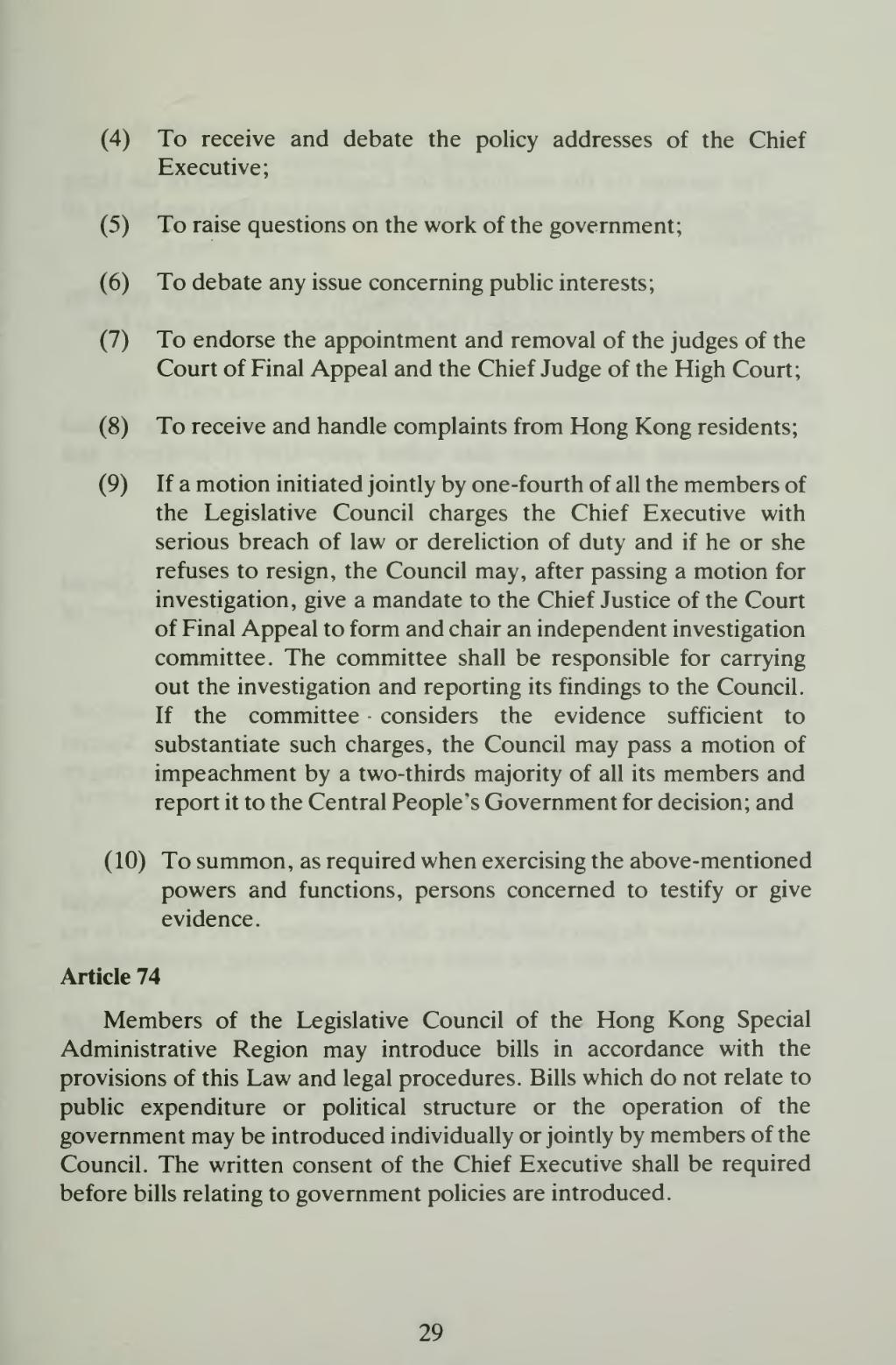(4) To receive and debate the policy addresses of the Chief Executive;
(5) To raise questions on the work of the government;
(6) To debate any issue concerning public interests;
(7) To endorse the appointment and removal of the judges of the Court of Final Appeal and the Chief Judge of the High Court;
(8) To receive and handle complaints from Hong Kong residents;
(9) If a motion initiated jointly by one-fourth of all the members of the Legislative Council charges the Chief Executive with serious breach of law or dereliction of duty and if he or she refuses to resign, the Council may. after passing a motion for investigation, give a mandate to the Chief Justice of the Court of Final Appeal to form and chair an independent investigation committee. The committee shall be responsible for carrying out the investigation and reporting its findings to the Council. If the committee considers the evidence sufficient to substantiate such charges, the Council may pass a motion of impeachment by a two-thirds majority of all its members and report it to the Central People's Government for decision; and
(10) To summon, as required when exercising the above-mentioned powers and functions, persons concerned to testify or give evidence.
Article 74
Members of the Legislative Council of the Hong Kong Special Administrative Region may introduce bills in accordance with the provisions of this Law and legal procedures. Bills which do not relate to public expenditure or political structure or the operation of the government may be introduced individually or jointly by members of the Council. The written consent of the Chief Executive shall be required before bills relating to government policies are introduced.
29
